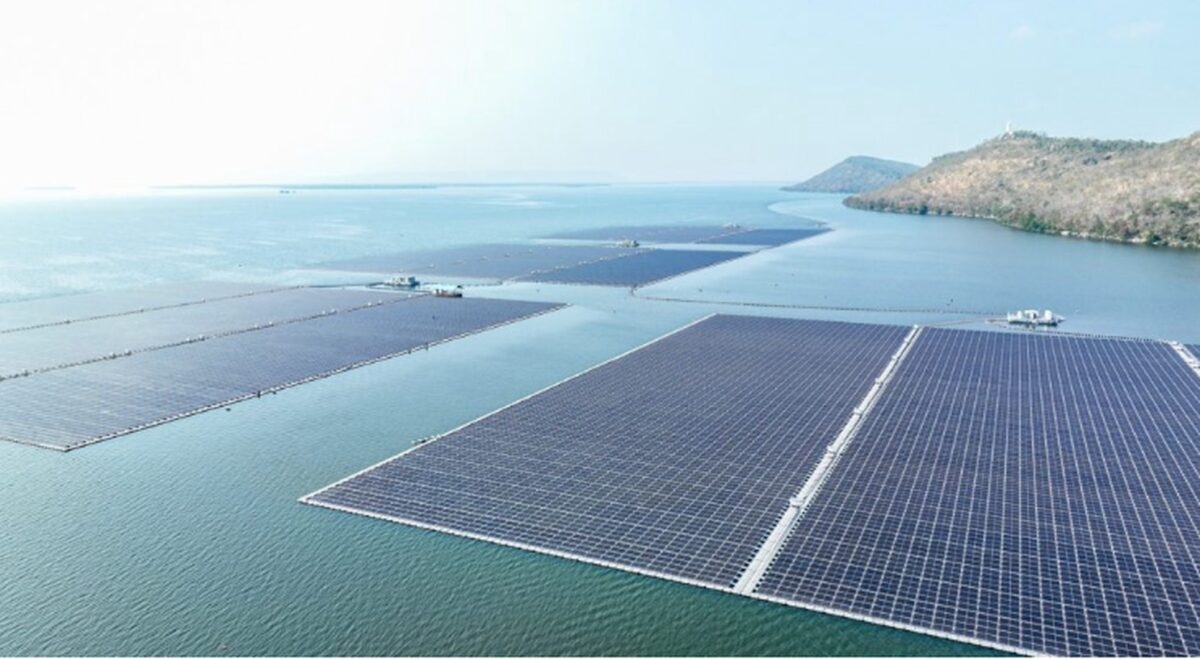EGAT has confirmed that a 24 MW floating hydro-solar hybrid project, located at Ubol Ratana Dam in Khon Kaen province in northeastern Thailand, has started commercial operation.
The hydro-solar hybrid project integrates solar energy, hydropower and a battery energy storage system (BESS). It harnesses solar energy in the day and hydropower at night, while the BESS allows continued electricity generation during the transition between the two. EGAT said an energy management system and weather forecast system have been incorporated to enhance stability of the electricity generation system.
The authority has collaborated with Thailand-based Fisheries Research Center to promote the conservation of aquatic animal species in the area. Fishery is integral to the quality of life of people living in the vicinity of the dam, with many millions of fish released into the reservoir annually.
EGAT said the solar panels, which cover less than 1% of the reservoir’s total surface area, are installed in a way that allows sunlight to penetrate the water surface without impacting the underwater ecosystem. It noted that it plans to develop a solar-powered shrimp farm in the area, acting as a learning centre so communities can generate income and achieve self-reliance.
The Ubol Ratana Dam project is EGAT’s second floating solar hybrid project developed in accordance with Thailand’s Power Development Plan. The authority is planning to develop 16 floating solar projects across nine of its dams with a total installed capacity of 2,725 MW.
According to the International Renewable Energy Agency (IRENA), Thailand deployed 3,065 MW of solar by the end of 2022. The country expects renewable energy to constitute more than 50% of its power generation mix by 2037.
Researchers from the US National Renewable Energy Laboratory have assessed 10 Southeast Asian countries including Thailand to have the combined potential to deploy over 1 TW of floating PV. The Southeast Asian solar market is thought to have grown by 13% last year, according to mid-year analysis by the Asian Photovoltaic Industry Association, with Thailand as one of the region’s largest markets.
This content is protected by copyright and may not be reused. If you want to cooperate with us and would like to reuse some of our content, please contact: editors@pv-magazine.com.




4 comments
By submitting this form you agree to pv magazine using your data for the purposes of publishing your comment.
Your personal data will only be disclosed or otherwise transmitted to third parties for the purposes of spam filtering or if this is necessary for technical maintenance of the website. Any other transfer to third parties will not take place unless this is justified on the basis of applicable data protection regulations or if pv magazine is legally obliged to do so.
You may revoke this consent at any time with effect for the future, in which case your personal data will be deleted immediately. Otherwise, your data will be deleted if pv magazine has processed your request or the purpose of data storage is fulfilled.
Further information on data privacy can be found in our Data Protection Policy.